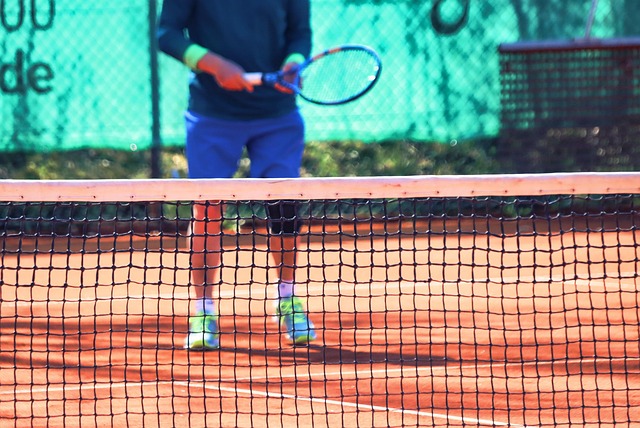In Oregon, grandparent rights are legally protected, requiring grandparents to navigate a structured court process to maintain meaningful relationships with their grandchildren. This involves demonstrating a strong bond and the child's best interests, as assessed by courts considering existing parenting plans. Strategic planning, consultation with a family law attorney, preparation of essential documents, and proactive communication are key. The process involves various legal entities, with courts prioritizing the child's best interests. Understanding case law and success stories can empower grandparents seeking access to their grandchildren.
“Exploring Grandparent Rights in Oregon: A Comprehensive Guide to Navigating the Court System. This article demystifies the complex process, offering an in-depth look at grandparent rights and access in Oregon. From understanding legal fundamentals to initiating proceedings, we guide you through each step. Learn about key actors, court roles, and successful case strategies. By examining real-world examples, grandparents can better prepare for navigating the Oregon court process, ensuring their voices are heard and connections to their grandchildren preserved.”
- Understanding Grandparent Rights in Oregon: An Overview
- Initiating Legal Proceedings: Steps to Navigate the Court System
- Key Players and Legal Representatives in an Oregon Custody Case
- The Role of Courts in Deciding Grandparent Access and Visitation
- Success Stories and Case Law: What Every Grandparent Should Know
Understanding Grandparent Rights in Oregon: An Overview

In Oregon, grandparent rights are recognized and protected by law, offering a pathway for grandparents to maintain significant relationships with their grandchildren. The state’s legal framework provides specific guidelines on when and how grandparents can gain or exercise visitation or custody rights, especially in cases where parents are not able or willing to provide care. Navigating the court process in Oregon involves understanding these laws and presenting a compelling case.
Grandparents seeking rights must demonstrate a substantial relationship with the child and their inability to provide that connection themselves. The courts consider various factors, including the child’s best interests, the quality of the grandparent-grandchild relationship, and any existing parenting plans or court orders. By presenting evidence and arguments based on these criteria, grandparents can navigate the Oregon court process effectively, ultimately advocating for their role in a child’s life.
Initiating Legal Proceedings: Steps to Navigate the Court System

Initiating legal proceedings to protect grandparent rights in Oregon involves a careful navigation of the state’s court system. The first step is to consult with an attorney specializing in family law, who can provide guidance tailored to your specific situation. They will help determine the appropriate legal avenue based on factors like the nature of the relationship between the grandparents and the child, as well as any existing custody arrangements.
Next, gather essential documents such as birth certificates, court orders, and any evidence supporting your claim for grandparent rights. File the necessary paperwork with the appropriate Oregon court, ensuring it complies with the required format and includes all mandated information. Once filed, attend scheduled hearings where a judge will review the case and make decisions regarding temporary or permanent custody arrangements, based on the best interests of the child principle. Effective navigation of these steps requires understanding the legal process and proactive communication with your attorney throughout.
Key Players and Legal Representatives in an Oregon Custody Case

When navigating the court process in Oregon for custody rights, several key players and legal representatives come into play. These include parents or guardians seeking custody, often referred to as petitioners, and grandparents looking to establish or maintain their rights, known as respondents. Grandparent rights in Oregon are a significant aspect of family law, allowing courts to consider the best interests of the child when deciding on custody or visitation.
Legal representatives such as attorneys for both parties play crucial roles in these cases. They guide their clients through the complex court procedures, ensuring all necessary documents are filed correctly and presenting arguments to support their client’s position. The court appoints a guardian ad litem (GAL) to represent the child’s best interests, adding an objective perspective to the case. Additionally, Oregon courts may involve child welfare services or other relevant agencies to provide reports and recommendations regarding the child’s well-being.
The Role of Courts in Deciding Grandparent Access and Visitation

When it comes to grandparent rights in Oregon, courts play a pivotal role in determining access and visitation. The navigation of the court process involves a careful consideration of the best interests of the child, balancing the needs of both parents and grandparents. In many cases, grandparents seek regular or expanded time with their grandchildren, especially when they’ve been cut off from the family due to divorce, relocation, or other circumstances.
Oregon courts assess each situation uniquely, looking at factors such as the quality of the grandparent-grandchild relationship, the parents’ willingness to facilitate visitation, and any potential impact on the child’s well-being. The process may involve filing a petition, attending hearings, and submitting relevant documentation. Understanding the court process is crucial for grandparents aiming to protect their rights and maintain meaningful connections with their grandchildren.
Success Stories and Case Law: What Every Grandparent Should Know

When navigating the court process in Oregon regarding grandparent rights, it’s empowering to look at success stories and case law. Many grandparents have successfully fought for and gained access to their grandchildren, ensuring a lasting impact on family dynamics. These cases have helped shape Oregon’s family law, providing a roadmap for other grandparents facing similar challenges. By understanding the legal precedents and strategies employed in these successful instances, grandparents can approach their own cases with confidence.
Case law offers valuable insights into how courts interpret grandparent visitation and custody rights, especially when parents are unwilling or unable to provide care. Familiarizing yourself with these legal principles can strengthen your position during proceedings. Remember that each case is unique, but learning from real-life experiences of other Oregon grandparents can be a powerful tool in advocating for your relationship with your grandchildren.














